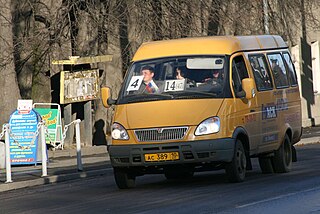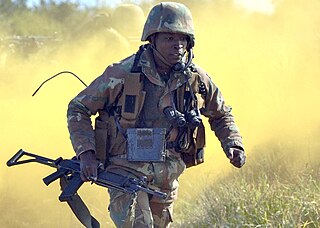
Pavlovo, also known as Pavlovo-na-Oke, is a town and the administrative center of Pavlovsky District in Nizhny Novgorod Oblast, Russia, located on the right bank of Oka River in the northwestern part of the Volga Upland. As of the 2010 Census, its population was 60,698.

Volodarsk is a town and the administrative center of Volodarsky District in Nizhny Novgorod Oblast, Russia, located on the Seyma River 50 kilometers (31 mi) west of Nizhny Novgorod, the administrative center of the oblast. Population: 9,928 (2010 Census); 10,989 (2002 Census); 11,034 (1989 Census).
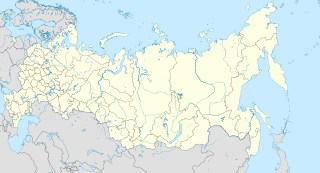
Ardatov is an urban locality and the administrative center of Ardatovsky District of Nizhny Novgorod Oblast, Russia, located on the Lemet River, 162 kilometers (101 mi) southwest of Nizhny Novgorod. Population: 9,566 (2010 Census); 10,117 (2002 Census); 10,027 (1989 Census).

Mukhtolovo is an urban locality in Ardatovsky District of Nizhny Novgorod Oblast, Russia, located 165 kilometers (103 mi) southwest of Nizhny Novgorod. Population: 5,005 (2010 Census); 5,711 (2002 Census); 5,868 (1989 Census).

Vyezdnoye is an urban locality in Arzamassky District of Nizhny Novgorod Oblast, Russia, located on the left (southwestern) bank of the Tyosha River, opposite the city of Arzamas, 115 kilometers (71 mi) south of Nizhny Novgorod. Population: 8,089 (2010 Census); 7,992 (2002 Census); 8,310 (1989 Census).

Gavrilovka is an urban locality under the administrative jurisdiction of the city of oblast significance of Dzerzhinsk in Nizhny Novgorod Oblast, Russia, located 28 kilometers (17 mi) west of Nizhny Novgorod. Population: 803 (2010 Census); 712 (2002 Census); 740 (1989 Census).

Zhyolnino is an urban locality under the administrative jurisdiction of the city of oblast significance of Dzerzhinsk in Nizhny Novgorod Oblast, Russia, located 40 kilometers (25 mi) west of Nizhny Novgorod and 2 kilometers (1.2 mi) southwest of Dzerzhinsk. Population: 896 (2010 Census); 696 (2002 Census); 1,112 (1989 Census).

Diveyevo is a rural locality and the administrative center of Diveyevsky District of Nizhny Novgorod Oblast, Russia. Population: 6,408 (2010 Census); 6,500 (2002 Census); 5,511 (1989 Census).
Avtozavodsky City District or Avtozavod is one of the eight districts of the city of Nizhny Novgorod, Russia. It is located in the southwest of the Lower City of Nizhny Novgorod, on the low left bank of the Oka River and has a land border with Leninsky City District to the north. It is also connected by the Myza Bridge with Prioksky City District in the Upper City. Population: 303,054 (2010 Census); 314,494 (2002 Census); 340,378 (1989 Census).

Sovetsky City District is one of the eight districts of the city of Nizhny Novgorod, Russia. Population: 143,401 (2010 Census); 154,205 (2002 Census); 175,600 (1989 Census). Area: 31 square kilometers (12 sq mi).

Bogorodsky District is an administrative district (raion), one of the forty in Nizhny Novgorod Oblast, Russia. Municipally, it is incorporated as Bogorodsky Municipal District. It is located in the west of the oblast. The area of the district is 1,459 square kilometers (563 sq mi). Its administrative center is the town of Bogorodsk. Population: 65,677 ; 30,864 (2002 Census); 33,693 (1989 Census). The population of Bogorodsk accounts for 54.1% of the district's total population.
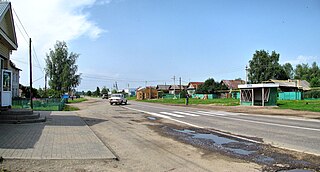
Diveyevsky District is an administrative district (raion), one of the forty in Nizhny Novgorod Oblast, Russia. Municipally, it is incorporated as Diveyevsky Municipal District. It is located in the south of the oblast. The area of the district is 844.8 square kilometers (326.2 sq mi). Its administrative center is the rural locality of Diveyevo. Population: 16,618 ; 17,848 (2002 Census); 18,375 (1989 Census). The population of Diveyevo accounts for 38.6% of the district's total population.

Gaginsky District is an administrative district (raion), one of the forty in Nizhny Novgorod Oblast, Russia. Municipally, it is incorporated as Gaginsky Municipal District. It is located in the southeast of the oblast. The area of the district is 1,064.2 square kilometers (410.9 sq mi). Its administrative center is the rural locality of Gagino. Population: 12,444 ; 15,079 (2002 Census); 17,473 (1989 Census). The population of Gagino accounts for 31.3% of the district's total population.
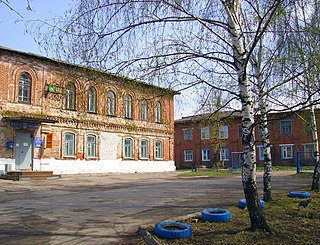
Knyagininsky District is an administrative district (raion), one of the forty in Nizhny Novgorod Oblast, Russia. Municipally, it is incorporated as Knyagininsky Municipal District. It is located in the east of the oblast. The area of the district is 769.9 square kilometers (297.3 sq mi). Its administrative center is the town of Knyaginino. Population: 11,922 ; 12,758 (2002 Census); 12,827 (1989 Census). The population of Knyaginino accounts for 56.3% of the district's total population.

Perevozsky District is an administrative district (raion), one of the forty in Nizhny Novgorod Oblast, Russia. Municipally, it is incorporated as Perevozsky Municipal District. It is located in the southern central part of the oblast. The area of the district is 769.2 square kilometers (297.0 sq mi). Its administrative center is the town of Perevoz. Population: 16,519 ; 18,024 (2002 Census); 17,146 (1989 Census). The population of Perevoz accounts for 55.7% of the district's total population.

Sergachsky District is an administrative district (raion), one of the forty in Nizhny Novgorod Oblast, Russia. Municipally, it is incorporated as Sergachsky Municipal District. It is located in the southeast of the oblast. The area of the district is 1,243.8 square kilometers (480.2 sq mi). Its administrative center is the town of Sergach. Population: 31,296 ; 35,779 (2002 Census); 42,588 (1989 Census). The population of Sergach accounts for 68.3% of the district's total population.

Vadsky District is an administrative district (raion), one of the forty in Nizhny Novgorod Oblast, Russia. Municipally, it is incorporated as Vadsky Municipal District. It is located in the southern central part of the oblast. The area of the district is 742.7 square kilometers (286.8 sq mi). Its administrative center is the rural locality of Vad. Population: 15,626 ; 16,442 (2002 Census); 15,365 (1989 Census). The population of Vad accounts for 42.9% of the district's total population.
Vad is a rural locality and the administrative center of Vadsky District, Nizhny Novgorod Oblast, Russia. Population: 6,698 (2010 Census); 6,759 (2002 Census); 6,058 (1989 Census).
Urazovka is a rural locality and the administrative center of Krasnooktyabrsky District, Nizhny Novgorod Oblast, Russia. Population: 1,626 (2010 Census); 1,916 (2002 Census); 2,303 (1989 Census).
Spasskoye is a rural locality and the administrative center of Spassky District, Nizhny Novgorod Oblast, Russia. Population: 3,947 (2010 Census); 4,092 (2002 Census); 4,044 (1989 Census).









